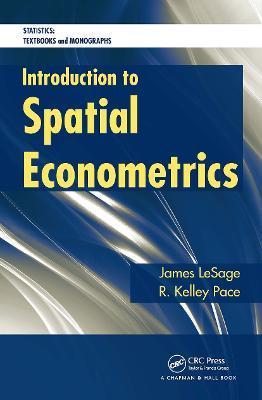Introduction to Spatial Econometrics

Introduction to Spatial Econometrics
Although interest in spatial regression models has surged in recent years, a comprehensive, up-to-date text on these approaches does not exist. Filling this void, Introduction to Spatial Econometrics presents a variety of regression methods used to analyze spatial data samples that violate the traditional assumption of independence between observations. It explores a wide range of alternative topics, including maximum likelihood and Bayesian estimation, various types of spatial regression specifications, and applied modeling situations involving different circumstances.
Leaders in this field, the authors clarify the often-mystifying phenomenon of simultaneous spatial dependence. By presenting new methods, they help with the interpretation of spatial regression models, especially ones that include spatial lags of the dependent variable. The authors also examine the relationship between spatiotemporal processes and long-run equilibrium states that are characterized by simultaneous spatial dependence. MATLAB(R) toolboxes useful for spatial econometric estimation are available on the authors' websites.
This work covers spatial econometric modeling as well as numerous applied illustrations of the methods. It encompasses many recent advances in spatial econometric models--including some previously unpublished results.
PRP: 398.84 Lei
Acesta este Prețul Recomandat de Producător. Prețul de vânzare al produsului este afișat mai jos.
358.96Lei
358.96Lei
398.84 LeiLivrare in 2-4 saptamani
Descrierea produsului
Although interest in spatial regression models has surged in recent years, a comprehensive, up-to-date text on these approaches does not exist. Filling this void, Introduction to Spatial Econometrics presents a variety of regression methods used to analyze spatial data samples that violate the traditional assumption of independence between observations. It explores a wide range of alternative topics, including maximum likelihood and Bayesian estimation, various types of spatial regression specifications, and applied modeling situations involving different circumstances.
Leaders in this field, the authors clarify the often-mystifying phenomenon of simultaneous spatial dependence. By presenting new methods, they help with the interpretation of spatial regression models, especially ones that include spatial lags of the dependent variable. The authors also examine the relationship between spatiotemporal processes and long-run equilibrium states that are characterized by simultaneous spatial dependence. MATLAB(R) toolboxes useful for spatial econometric estimation are available on the authors' websites.
This work covers spatial econometric modeling as well as numerous applied illustrations of the methods. It encompasses many recent advances in spatial econometric models--including some previously unpublished results.
Detaliile produsului










